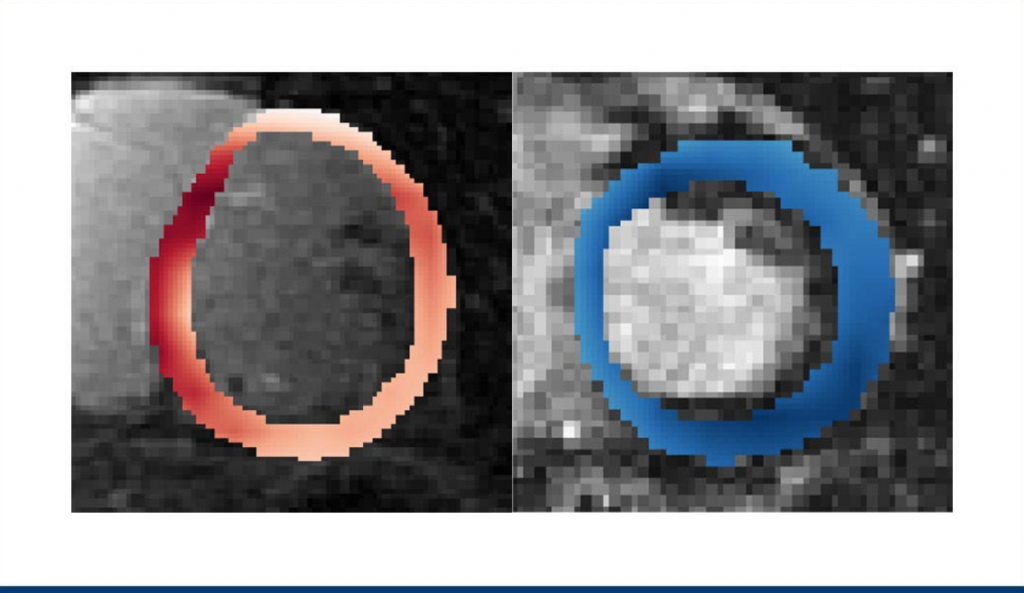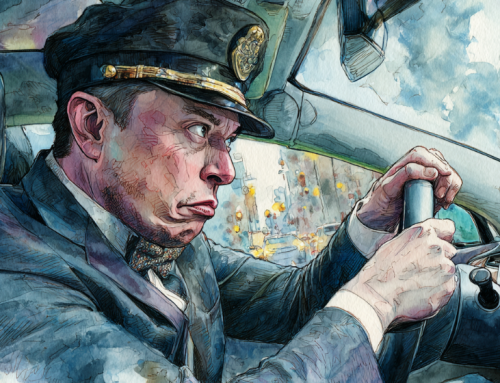
A first-of-its-kind algorithm, uses raw MRI images to predict if and when a patient will have a lethal episode of heart arrhythmia. It detected a high risk in the heart circled in red. Credit: Johns Hopkins University
Dual Neural Networks Analyze MRIs to Produce Personalized Heart Assessments
So many things can go wrong with a human heart. Heart disease is by far the biggest killer of humans on earth. While doctors and modern medicine have made miraculous progress in the repair and care of the human heart, scientists think they may have been missing some important information. Now there comes a new algorithm that is able to pick up signs of heart problems that humans can’t.
An article from scitech.com heralded some interesting news regarding predicting with AI when someone would likely die from a heart problem that had gone undiagnosed. The team is the first to use neural networks to build a personalized survival assessment for each patient with heart disease. These risk measures provide with high accuracy the chance for a sudden cardiac death over 10 years, and when it’s most likely to happen.
The work, led by Johns Hopkins University researchers, is detailed on April 7, 2022, in Nature Cardiovascular Research.
“Sudden cardiac death caused by arrhythmia accounts for as many as 20 percent of all deaths worldwide and we know little about why it’s happening or how to tell who’s at risk,” said senior author Natalia Trayanova, the Murray B. Sachs Professor of Biomedical Engineering and Medicine. “There are patients who may be at low risk of sudden cardiac death getting defibrillators that they might not need and then there are high-risk patients that aren’t getting the treatment they need and could die in the prime of their life. What our algorithm can do is determine who is at risk for cardiac death and when it will occur, allowing doctors to decide exactly what needs to be done.”
The team used contrast-enhanced cardiac images that visualize scar distribution from hundreds of real patients at Johns Hopkins Hospital with cardiac scarring to train an algorithm to detect patterns and relationships not visible to the naked eye. Current clinical cardiac image analysis extracts only simple scar features like volume and mass, severely underutilizing what’s demonstrated in this work to be critical data.
“The images carry critical information that doctors haven’t been able to access,” said first author Dan Popescu, a former Johns Hopkins doctoral student. “This scarring can be distributed in different ways and it says something about a patient’s chance for survival. There is information hidden in it.”
The team used a second algorithm to learn from 10 years of standard clinical patient data, 22 factors such as patients’ age, weight, race, and prescription drug use.
The algorithms’ predictions were not only significantly more accurate on every measure than doctors, they were validated in tests with an independent patient cohort from 60 health centers across the United States, with different cardiac histories and different imaging data, suggesting the platform could be adopted anywhere.
Of all recent AI advancements in the field of medicine, this will be a game-changer for people around the world suffering from heart problems.
read more at scitechdaily.com







Leave A Comment